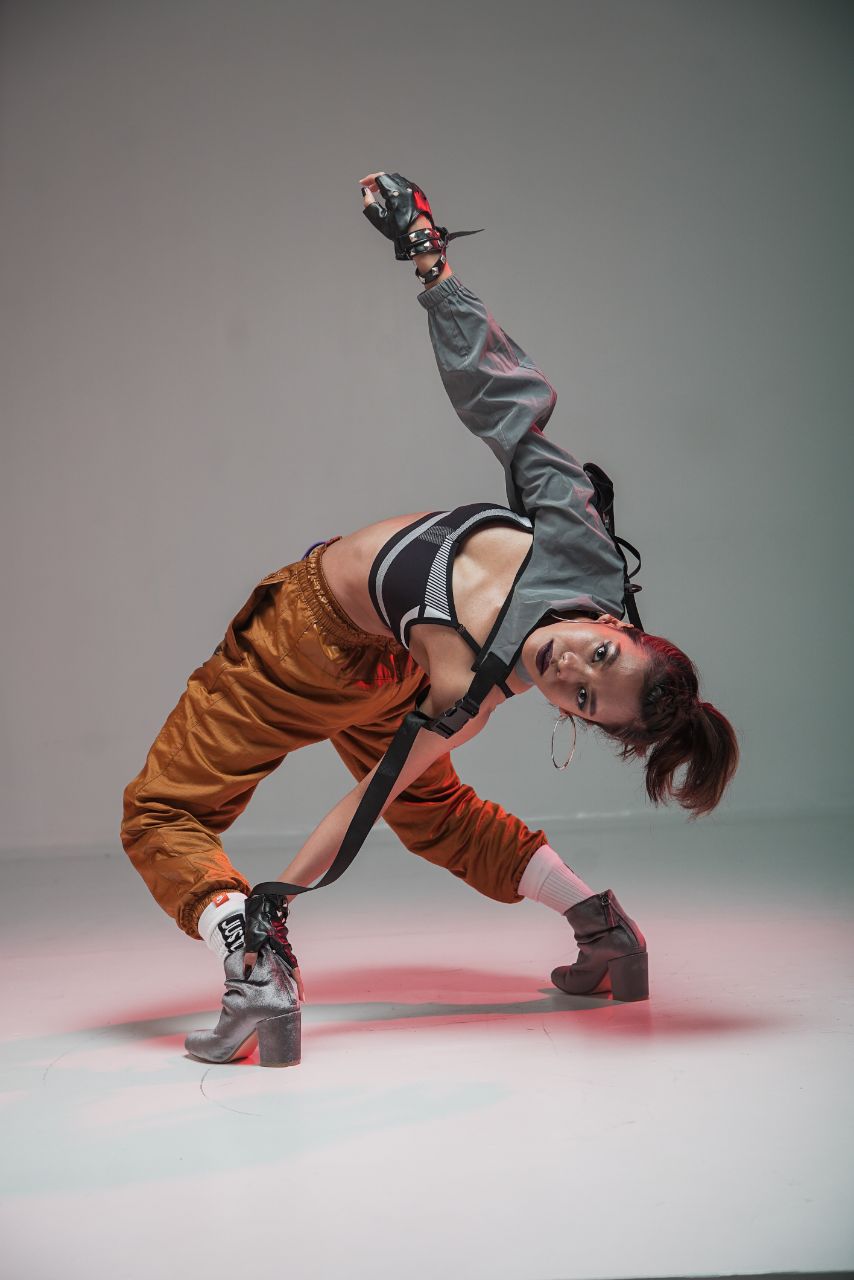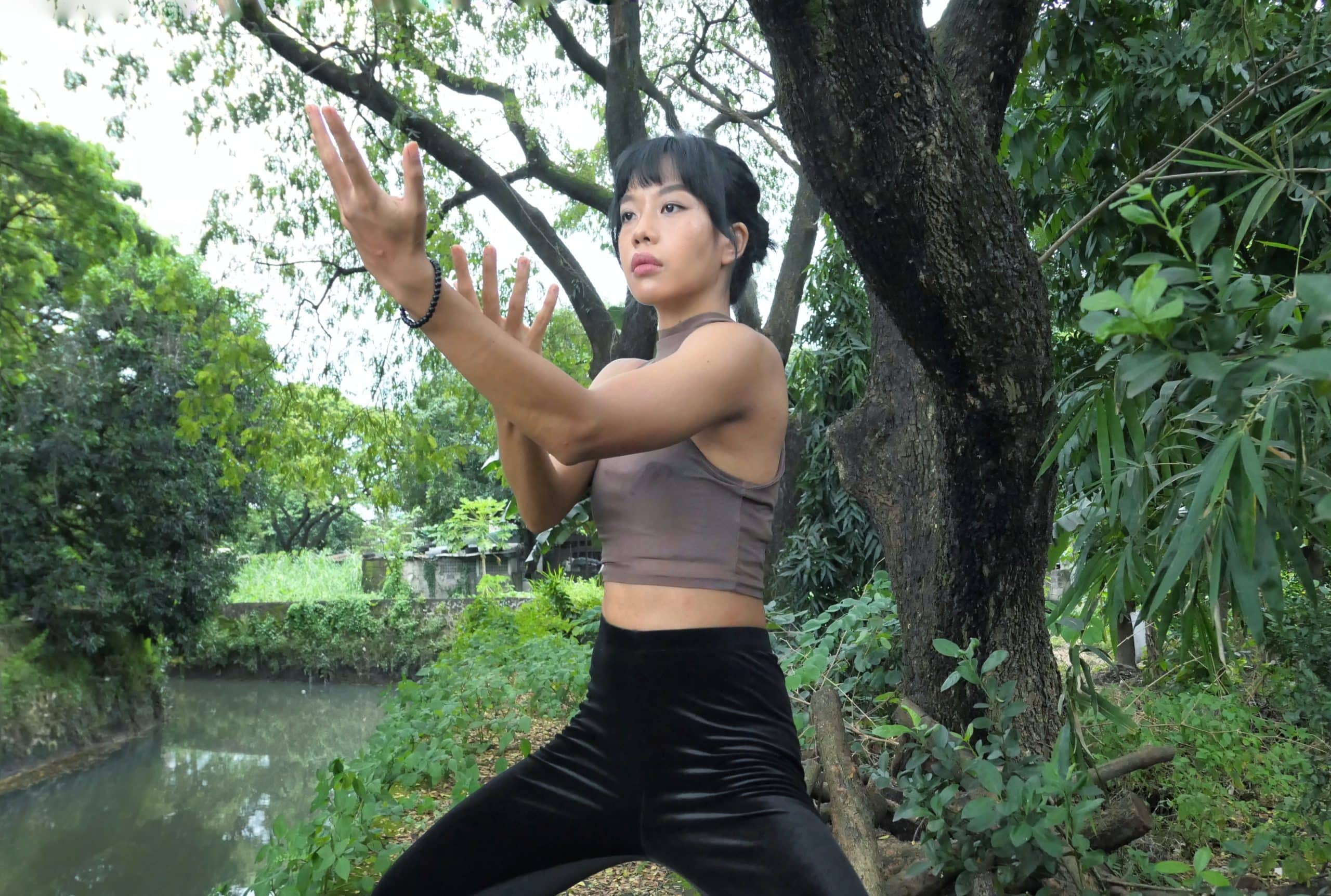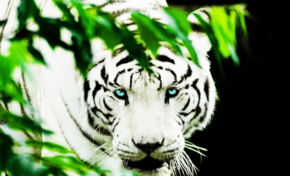Qigong for Dancers
Do you dance and perform? If so, then perhaps you need qigong for dancers for more energy to keep the beat. In this article, we will dive into Qigong for dancers. If you are a dance artist, dancer athlete, performer, and the like, the FREE Qigong routine video above will help you balance and re-energize your body.
My name is Elly and I am a dancer myself and have been training in dance for around 18 years. I started dance training when I was 15 years old, and kept on studying and learning as I performed constantly. I have performed and competed dance in different countries all over the world.
Dance is a very complex art form that incorporates many different elements. It involves efficient use of our physical and cognitive skills, mental awareness, and improvisational skills. For dancers, dance training involves learning countless movements and techniques to reach your best potential as a dancer. Having the ability to perform dance routines, movements, and “tricks” in an effective manner requires high levels of strength, flexibility, agility, balance and endurance. This qigong for dancers routine is very helpful to me whenever I need to find balance, restructure, and re-energize my body.
Power of Movement

Photo by JB Estrada
When we think of dancers, movement artists, performers, and the like, one of the most important components we associate with is MOVEMENT.
Movement is very powerful. We use movement both in qigong and dance. It can be a form of expression, strength, and power. Dancing can require a lot of movement for the body. For the dancers, the body is always being challenged in many different ways. Dance and performing is a very Yang lifestyle compared to those who require less movement in their day-to-day lives.
Similarities of Qigong and Dance
The ancient Chinese were one of the firsts to discover that certain movements using the body had healing effects. During the Han Dynasty (25-220 B.C.), a leading Chinese physician named Hua Tuo (25-205 B.C.) saw animal-like movements (dance) from shamanic tribes and applied them to Ancient Chinese Medicine. It was then that Medical Qigong entered a new evolution of using dynamic movements as an effective form of healing. So, one of the inspirations of movement of qigong is very similar to meditative dance movements.
Qigong and dance are very much alike in many aspects, not only because both use movement but also because these movements have intentions and inspirations. If you are a dancer and you do qigong, you may learn movements more naturally.
Differences Between Qigong and Dance
Dance is a performance art that allows a person to express themselves through movement. There are different kinds and styles of dance, for example ballet has different techniques, which are also used to develop choreographies for performances. Street-style dances have choreography, techniques and freestyles. Contemporary dances also have different techniques and dance compositions. The expressions in dance are based on techniques, and through these techniques intentions and/or inspirations are expressed through movement.
Qigong is a system of practices for healing and longevity. The intention of the movement is focused both on the internal and external compositions of the body. Some qigong, such as martial qigong, use these movements to cultivate energy for physical strength and power. Medical qigong systems such as the White Tiger Qigong uses movements to cultivate energy for health and vitality.
Is Qigong the same as Dance and is Dance the same as Qigong?
Qigong and dance are still different practices as both have different goals and approach. Qigong is not a “Dance” practice, but an ancient system of healing and improvement. Qigong incorporates a holistic approach to the body, inspired by the way of nature. Movements in qigong are intended to work on the inner energetic pathways, vessels, organs, and meridians by using both external and internal alchemy. By doing so we align ourselves to our natural state and cycle which allows energy to flow more freely. When this happens, we reach maximum health, and vitality, and cultivate strength and power.
Balancing a Very Yang Lifestyle Through Qigong for Dancers

A very Yang lifestyle uses a lot of energy in the body. Qigong for dancers is best to cultivate energy either before or after concerts, shoots, battles, competitions, or training to help balance and re-energize the body to recover or reach the optimum potential to reach optimum goals.
Knowing our body better and how movement can help cultivate qi through qigong practices will help dance artists, dance athletes, and performers have a deeper knowledge of delegating energy. Qigong for dancers will help balance a very yang lifestyle and help in performing to the optimum potential.
What is more effective for dancer artists, dance athletes, and performers to cultivate energy than with movement itself?
Qigong for Dancers Exercises
The Wave / Dragon Back

The Wave or Dragon Back Qigong from the 8 Trigram Organ Qigong is a very good qigong for dancers. When we do different kinds of movements, especially challenging ones, oftentimes this compresses the spine. Doing The Wave or Dragon Back helps the spine to decompress. When the spine is free from compression not only can we move better but also allow better mind-body function. The mind-body function is very important for dancers. This helps in memorizing steps, muscle memory, body coordination, and many more.
Dragon Whips its Tail

Dragon Whips its Tail Qigong from the 8 Trigram Organ Qigong is also another very efficient qigong for dancers. The Dragon Whips its Tail also incorporates The Wave or Dragon back. This means that it has all the benefits of The Wave or Dragon Back plus the benefits to the arms and focus on the energy centers.
Through the movement of the arms in the Dragon Whips its Tail we release any tensions in the arms and the back. Dancers use a lot of muscles in the arms and the back and these areas usually stiffen up. Doing this qigong will help loosen up the tension in these areas. It helps not only with the tension in the muscles. It also allows more movement of energy in the meridians or energy pathways of the body which runs along the arms. Through this energy in our body flows more freely, which releases blockages or stagnation of energy.
The Dragon Whips its Tail also focuses on the energy centers of the body called the 3 Dantians. The 3 Dantians are the Lower Dantian, Middle Dantian, and Upper Dantian. These 3 Dantians are known to house our energy from our jing (life source), qi (energy), and shen (spirit). Cultivating these centers helps us to cultivate energy, balancing our body from a very yang kind of movement in dance where the direction of energy tends to go outwards. These qigong exercises bring back the energy within us, cultivating our energy centers and at the same time releasing stagnations and blockages. That is why this is a very effective and efficient qigong for dancers.
Serving Teacups

Serving Teacups Qigong from the 8 Trigram Organ Qigong is the last qigong for dancers exercise we will discuss for now. This qigong exercise is a very good upper-body flow qigong for dancers. It helps the body find flow and reach a flow state with its gentle and spiral movements. These spiral movements serve as a gentle massage to the meridians, releasing any tension, stagnations, and blockages. Through repetitive flow cycles in this qigong, we learn to relax through movement, reaching a more restful state as the body activates the parasympathetic nervous system.
Activating the parasympathetic nervous system is very important, especially for those who have a very yang lifestyle. Oftentimes, when we are in a very yang lifestyle we are always in a flight-or-fight mode. We never really have the time to rest, and the body never really gets the chance to recover from a very hard day of work.
Learn more about Qigong for Dancers
There are a lot more qigong exercises that will surely benefit dancers so if you want to learn more check out White Tiger Qigong courses such as the 8 Trigram Organ Qigong. Using qigong for dancers will help in learning to balance yin and yang energy through movement and energy cultivation.










